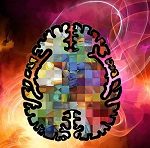The Executive Function Model in ADHD
I thought that this was the perfect time to get fired up and write about The Executive Function Model in ADHD; something that keeps popping up in my work as both a mentor and a coach.
For the most part, I think I am pretty good at multitasking and being organised, but going through the ups and downs of trying to find someone at CAMHS to commit to having my second child now 7yrs assessed for ADHD (we finally succeeded with a positive diagnosis), life has been a bit of ride on the fast train. I mean it is exhausting!
It takes a lot of time, drive, motivation, and organisation to execute the tasks of getting a diagnosis, getting your child into the right school, organising their Education Health Care Plan, and just managing their day-to-day life. The rewards are delayed or sometimes don’t come at all. The time it takes to fill out the numerous diagnostic forms, making appointments, dealing with the school around behaviour management, educating the educators around ADHD, more form filling and the numerous phone calls without an end in sight, it’s no wonder a person just wants to hide under the covers and avoid the world. This can cause burnout and fast and this is just one of the many aspects that an SEN parent goes through in their child’s SEN Life.
This got me thinking about what this level of self-regulation and executive function management does to a person who has a deficit in this area of their brain. What does it mean for them? What is executive function deficit and how does it affect ADHD?
What is executive function (EF)?
Executive function (EF) can be described as the brain’s management system; goal preparation, future planning, managing time, staying focussed, problem solving, managing emotions. There are three main areas of executive function: Flexible cognition, working memory, and self-control. EF is often defined as ‘goal-directed behaviour’, however, there is no clear agreement on what EF really means. Barkley (2012) suggests that Executive Function deficits equal Self-Regulation deficits. He goes on to explain the mental processes associated with the idea of EF: emotional self-regulation, self-motivation, distraction resistance, and being self-aware and the very same mental processes associated with self-regulation. Therefore one could say that an EF deficit in ADHD is the inability to self-regulate.
The EF Deficits/SD deficit model and ADHD
If you have ADHD or suspect you have ADHD you may recognise/identify with some of the EF/SD deficits listed here:
Emotional Dysregulation:
Usually, high emotional dysregulation is seen in children with ADHD. Going from 0-Hulk happens in seconds and calming down takes a while. This can mean heightened emotions, from swearing at the other party, to throwing things and breaking things. The inability to calm down in a negative situation doesn’t happen as easily as it would in a person who can self-regulate fairly quickly. Tantrums in ADHD toddlers for example can spiral and last longer than a child without ADHD. In adults this can present as oversized irritability, shifts in mood, feeling over-sensitive compared to peers. Often the inability to self-regulate quickly can throw the person’s day off completely, rendering them ineffective for everything else for that day.
Time Blindness:
Have you ever had an assignment due in a week but ended up pulling an all-nighter because it was suddenly due the next day? Where did the week go? You know you had every intention of being on time and meeting the deadline, but time just slipped by. Sometimes, you miss the deadline altogether. This is time blindness. It is not that the person is unable to know what to do; it’s that things just don’t happen. Self-activation and being easily distracted, two prevalent symptoms of ADHD play their part in time-blindness. I often hear my clients and family members with ADHD say, that they start out on a given day with a list of items to complete and find themselves hours later having only completed one or at best two items on the list. Time just passed on by and they often cannot account for the loss of that time. When questioned about what they were doing at that time, they often say it was something they were enjoying immensely and couldn’t shift their focus from.
Focus:
Maintaining focus in ADHD is very difficult and this is very true for the things that are tedious or of no interest to the person. This can lead to low motivation to organise, process, and complete the task. In a task that is of great interest to the person with ADHD, the focus is heightened, and shifting or transitioning from that task can be difficult. The person is unable to self-regulate their focus and move in accordance with the needs of the task or situation.
Impulsivity:
Imagine you told yourself that you will wait for Christmas to get that new smartwatch. You know you have to save up for it. Then you are walking through the mall and you see it in the shop window. What would you do? Words, actions, and behaviours that are driven by impulsivity and lack of self-restraint in ADHD is often due to the brain’s inability to self-regulate that behaviour, leading a person with ADHD to go straight into the store and buy the watch. Why wait for four weeks until Christmas, when I could have it right now and enjoy it. Long-term rewards are too ambiguous in ADHD and impulsivity is driven by that ‘instant reward’ behaviour. I often hear that when working with children with ADHD, rewards charts are ineffective. If the child has to wait all week to get that gold certificate then the rewards are meaningless. It is always better to offer rewards on the spot if the child recognises challenging behaviour and modifies it.
Organisation:
It’s not that people with ADHD cannot be organised, because they don’t know what to do. It’s because they don’t know how to do what they know. The mental processing of ordered thinking is disorganised. Imagine a policeman who is meant to be directing traffic is asleep on the job. Without traffic lights and the sleeping traffic cop, you have a street filled with chaos (Mate, 1999). This is what a disorganised brain looks like. People with EF/SR deficits struggle with self-organisation: where is that important appointment letter? Should have put that meeting in the diary! Where are my car keys, five minutes before I have to leave to pick up the kids? The person with an EF deficit in this area knows that they can be organised by getting a calendar, using a timer, an alarm system, or even posting notes all over their home, however finding the motivation and focus to do these simple organisational tasks requires the five EF/SR functions listed here to work in unison.
Going Forward:
Okay, now what? What can you do about it? Do you want to do anything about it? Well here are some options:
Coaching (Engaging an ADHD Coach)
ADHD coaching is designed to support the client by assisting them in building a good understanding of what ADHD is (psychoeducation) and the impact it has on their life. Coaches also work with the client to build strategies and skills to cope with their day-to-day life and build goals. The coach helps the client to address these E.F. deficits and enable the client to realise that they are resourceful and by using their coping skills can self-regulate and reduce the negativity surrounding their ADHD.
Cognitive Behavioural Therapy (CBT)
CBT is a type of therapy that trains the brain and has shown to be efficacious as an ADHD therapy. CBT is designed to re-frame a person’s thinking, especially around negative feelings. By re-framing a person’s cognition (thinking) you can also re-frame their behaviour. Ramsay and Rostain (2014) suggest that for people with ADHD, CBT aims to provide coping strategies and tools to re-frame the perceptions that people with ADHD have which are often negative as they try to navigate their lives in a neurotypical world. The tools and strategies are designed to manage these negative perceptions. CBT then analyses the patterns of behaviour that interfere with the tools and strategies.
Medication
Medication is a personal choice and one that is purely up to you to explore. Those that do take the medication often say that it gives them clarity and they feel the ‘brain fog’ lift. The medication is a stimulant medication and there are two types of stimulant medications; Methylphenidate and Amphetamine. Some people choose to take non-stimulant medications as well.
Mindfulness
Mindfulness is a practice where a person’s attention is drawn to the present moment, particularly around the internal reactions to things in the moment or real-time. The practice involves, training your attention and connecting with what is happening to you both inside and out in that moment. For people with ADHD, it has been shown to help the client train their momentary awareness and build self-regulation. As paying attention is an area of difficulty in ADHD, training your attention to pay attention is useful for reducing impulsivity, as mindfulness encourages you to sit with emotions to explore how you feel about that emotion. It helps to strengthen your ability to train your attention, by becoming more self-aware.
There are many other forms of support to help in managing and coping with ADHD, which I will leave you to explore, from behavioural to music therapy for both children and adults. Being armed with the understanding of ADHD and what drives it is the key to helping you cope and find the strategies that work best for you. Most of all, accept that you don’t lack the skills to navigate your life. You are your best resource, but sometimes you just need a compass to steer you in the direction that you want to take your life.
Author: Vanessa Maugey
References:
Barkley, R. A. (2012). Executive Functions: What They Are, How They Work, and Why They Evolved. New York: Guilford Press.
Mate, G. (1999). Scattered minds: A new look at the origins and healing of attention deficit disorder. Toronto: A.A. Knopf Canada.
Ramsay, J. R., & Rostain, A. (2008). Cognitive-behavioral therapy for adult ADHD: An integrative psychosocial and medical approach. Routledge/Taylor & Francis Group.

 Previous Post
Previous Post Next Post
Next Post